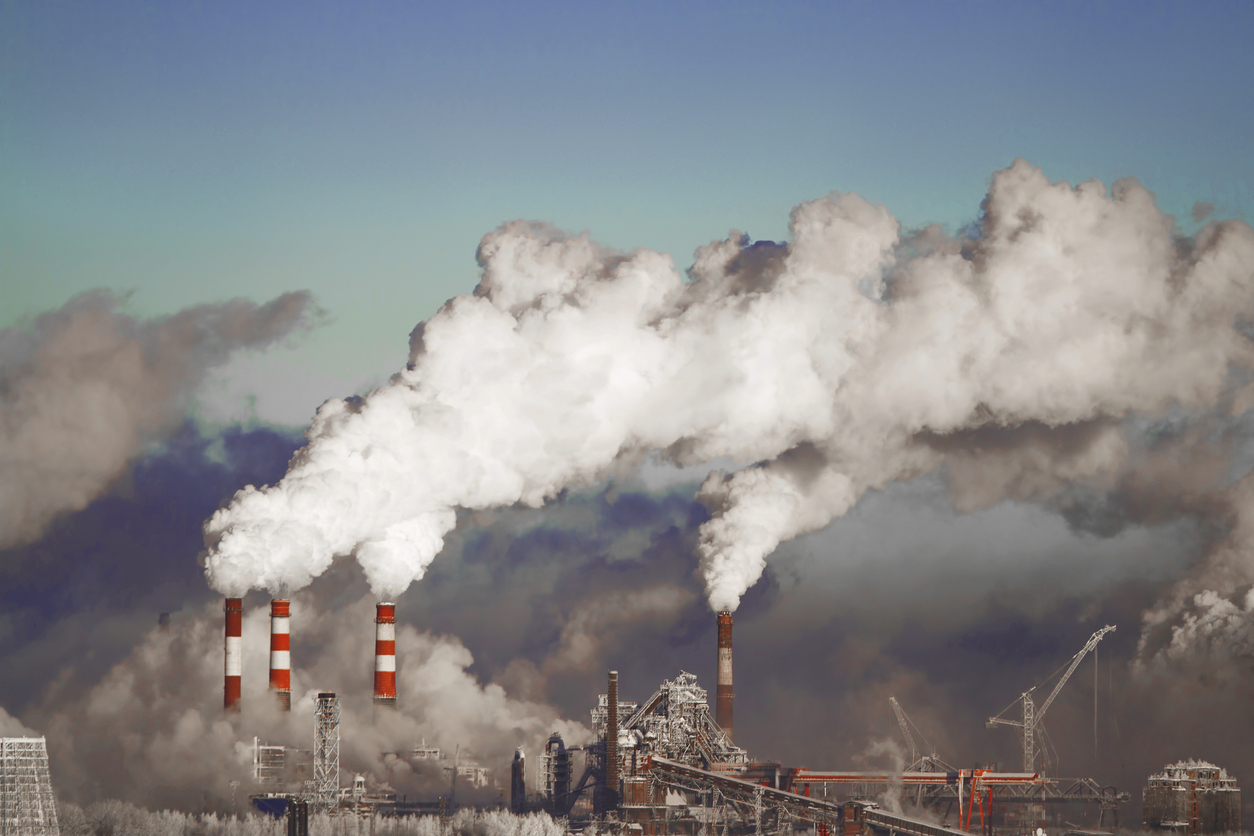U.N. report: We are 'nowhere near on track' to avoid catastrophic climate change


A free daily email with the biggest news stories of the day – and the best features from TheWeek.com
You are now subscribed
Your newsletter sign-up was successful
A United Nations report published Thursday found that the world is "nowhere near on track" to meet goals in reducing the effects of climate change, reports The Guardian.
World governments committed to taking steps that would keep global warming in check, determining that 1.5 degrees Celsius on average is the maximum temperature increase the world can sustain before melting ice caps and deadly heatwaves bring catastrophic change to much of the globe. But "we are moving way too slowly" to avoid surpassing that limit, said Ola Elvestuen, Norway's environment minister.
The U.N.'s Intergovernmental Panel on Climate Change found that governments need to drastically decrease their greenhouse gas emissions. A co-author of the report, Drew Shindell, said eliminating fossil fuels like coal and quickly transitioning to solar or wind energy would help — but world leaders are way behind schedule. "While it's technically possible, it's extremely improbable, absent a real sea change in the way we evaluate risk," said Shindell. "We are nowhere near that."
The Week
Escape your echo chamber. Get the facts behind the news, plus analysis from multiple perspectives.

Sign up for The Week's Free Newsletters
From our morning news briefing to a weekly Good News Newsletter, get the best of The Week delivered directly to your inbox.
From our morning news briefing to a weekly Good News Newsletter, get the best of The Week delivered directly to your inbox.
Other world leaders told The Guardian that President Trump's embrace of "clean coal" and decision to exit the Paris climate agreement has made things harder on everyone. "It's a lot more difficult without the U.S. as a leader in climate change negotiations," said Elvestuen. "We have to find solutions even though the U.S. isn't there." But the president of the Marshall Islands, Hilde Heine, says other nations should follow in their footsteps and commit to zero emissions by 2050. "If we can do it," she said, "so can everyone else." Read more at The Guardian.
A free daily email with the biggest news stories of the day – and the best features from TheWeek.com
Summer Meza has worked at The Week since 2018, serving as a staff writer, a news writer and currently the deputy editor. As a proud news generalist, she edits everything from political punditry and science news to personal finance advice and film reviews. Summer has previously written for Newsweek and the Seattle Post-Intelligencer, covering national politics, transportation and the cannabis industry.
-
 Local elections 2026: where are they and who is expected to win?
Local elections 2026: where are they and who is expected to win?The Explainer Labour is braced for heavy losses and U-turn on postponing some council elections hasn’t helped the party’s prospects
-
 6 of the world’s most accessible destinations
6 of the world’s most accessible destinationsThe Week Recommends Experience all of Berlin, Singapore and Sydney
-
 How the FCC’s ‘equal time’ rule works
How the FCC’s ‘equal time’ rule worksIn the Spotlight The law is at the heart of the Colbert-CBS conflict
-
 The plan to wall off the ‘Doomsday’ glacier
The plan to wall off the ‘Doomsday’ glacierUnder the Radar Massive barrier could ‘slow the rate of ice loss’ from Thwaites Glacier, whose total collapse would have devastating consequences
-
 Can the UK take any more rain?
Can the UK take any more rain?Today’s Big Question An Atlantic jet stream is ‘stuck’ over British skies, leading to ‘biblical’ downpours and more than 40 consecutive days of rain in some areas
-
 As temperatures rise, US incomes fall
As temperatures rise, US incomes fallUnder the radar Elevated temperatures are capable of affecting the entire economy
-
 The world is entering an ‘era of water bankruptcy’
The world is entering an ‘era of water bankruptcy’The explainer Water might soon be more valuable than gold
-
 Climate change could lead to a reptile ‘sexpocalypse’
Climate change could lead to a reptile ‘sexpocalypse’Under the radar The gender gap has hit the animal kingdom
-
 The former largest iceberg is turning blue. It’s a bad sign.
The former largest iceberg is turning blue. It’s a bad sign.Under the radar It is quickly melting away
-
 How drones detected a deadly threat to Arctic whales
How drones detected a deadly threat to Arctic whalesUnder the radar Monitoring the sea in the air
-
 ‘Jumping genes’: how polar bears are rewiring their DNA to survive the warming Arctic
‘Jumping genes’: how polar bears are rewiring their DNA to survive the warming ArcticUnder the radar The species is adapting to warmer temperatures
